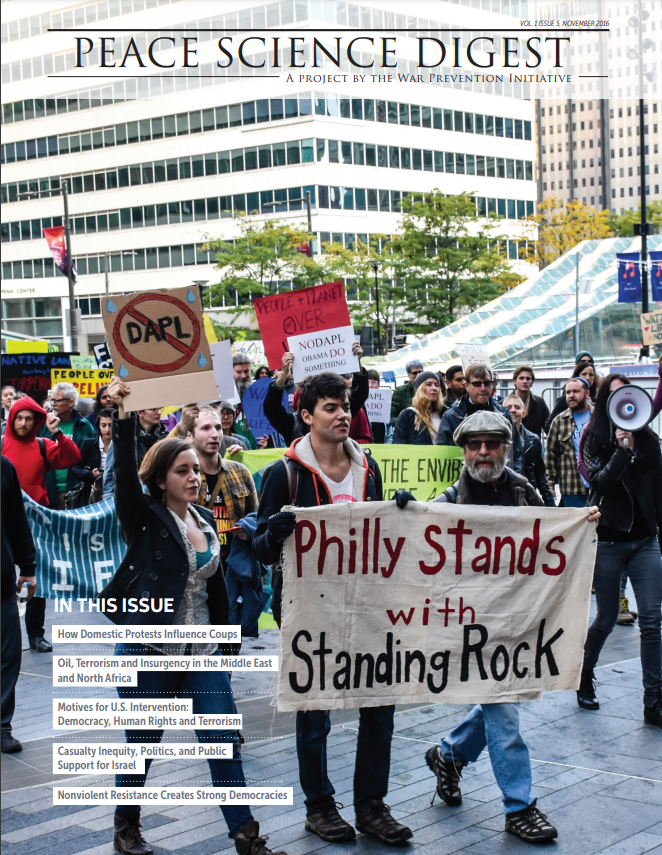
Volume 1, Issue 5
Inside this issue, we provide relevant research examining multiple lenses of war prevention and the viable
nonviolent alternatives: how domestic protests influence coups; oil, terrorism and insurgency in the
Middle East and North Africa; democracy, human rights and terrorism as possible motives for U.S. military
intervention; the uneven distribution of civilian casualties, politics, and public support for Israel; and how
nonviolent resistance contributes to strong democracies.
Measuring Peace
Measuring Peace: Using metrics of peace to transform conflict, alleviate human suffering, and address global poverty
Special Issue: Peace Education
Dear Readers, We hope you enjoy this Special Issue on Peace Education. Click on the icon to download or open in a new tab: Special Issue: Peace Education Download For the text-only format of this issue’s analyses please click on the titles below or visit our Analysis Catalog. ‘Pedagogies of Resistance’ and Critical … Read more

Volume 1, Issue 4
Dear Readers, We hope you enjoy Volume 1, Issue 4 of the Peace Science Digest. Please click on the icon to download. Download For the text-only format of this issue’s analyses please click on the titles below or visit our Issue Archive. Minority Groups, Political Exclusion and Terrorism Defeating ISIS with Nonviolent … Read more

Volume 1, Issue 3
Dear Visitors, We hope you enjoy Volume 1, Issue 3 of the Peace Science Digest. Please click on the icon to download. Download Now! For the text-only format of this issue’s analyses please click on the titles below or visit our Issue Archive. Ethnic Minorities and Terrorism International Peacekeeping and Positive … Read more
Special Issue: Resources and Conflict
Dear Readers, Special Issue: Resources and Conflict from the Peace Science Digest. Click on the icon to download Special Issue: Resources and Conflict For the text-only format of this issue’s analyses please click on the titles below or visit our Analysis Catalog. Resources and Conflict: Reframing the Debate Digging Deeper: Don’t Blame Your … Read more

Micro-Enterprise Development and Peacebuilding in Sri Lanka
The civil war in Sri Lanka emerged as a result of economic forces; effective peacebuilding must involve economic development for affected communities.
Civil Resistance Amid Civil War
Civil resistance— in particular, the creation of peace territories— can be used to resist not only authoritarian regimes but also violence itself.
Sanctions Against Non-State Armed Actors
Sanctions research and policy focus on states, giving little attention to challenges of targeting non-state armed actors, making sanctions less effective.
External Support and Civil War Termination
When rebel groups receive outside financial support, civil wars are more than two times less likely to end compared to receiving non-financial support.
